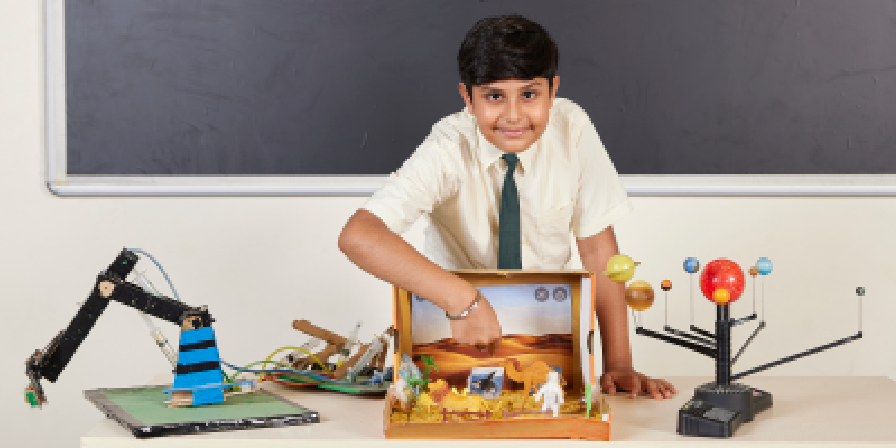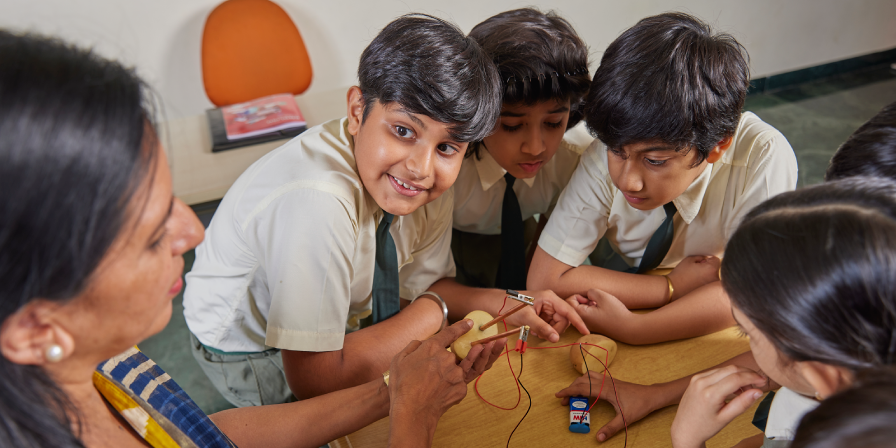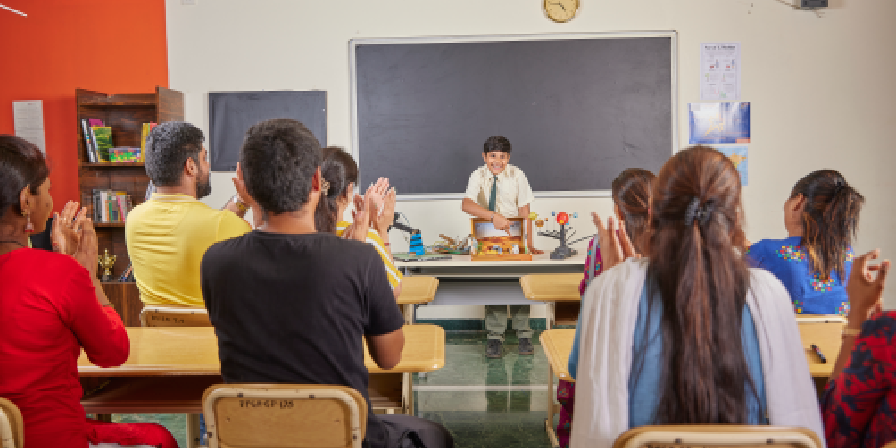National Education Policy NEP 2020 Explained
Understanding Holistic Education and Experiential Learning by NEP 2020
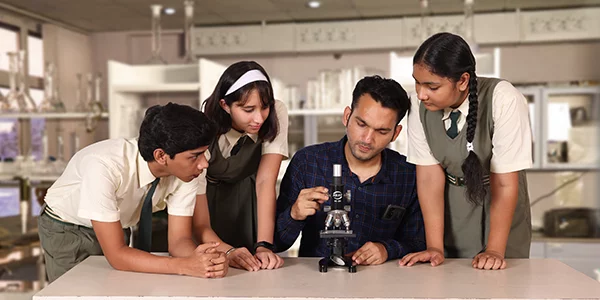
Understanding Holistic Education and Experiential Learning by NEP 2020
Last Updated On: 02/12/2024
Siddharth Saxena
School Owner

Our education systems are relics of the past. It’s time to bring them into the present.
What Does NEP State about the Holistic Curriculum?
New Education Policy 2020 states, “Pedagogy must evolve to make education more experiential, holistic, integrated, inquiry-driven, discovery-oriented, learner-centred, discussion-based, flexible, and, of course, enjoyable. The curriculum must include basic arts, crafts, humanities, games, sports and fitness, languages, literature, culture, and values, in addition to science and mathematics, to develop all aspects and capabilities of learners; and make education more well-rounded, useful, and fulfilling to the learner.”
According to New Education Policy 2020, academic excellence alone doesn’t guarantee success in life. Moral, emotional, physical, psychological, and spiritual dimensions should be taken well into consideration by schools for holistic development.
What is Holistic Education?
Holistic education, as outlined by the New Education Policy 2020, is a comprehensive approach that acknowledges the interconnectedness of various aspects of learning and personal development. It goes beyond traditional academic learning to encompass intellectual, emotional, social, physical, artistic, and ethical development.
The National Education Policy (NEP) 2020 emphasises a comprehensive approach to education by advocating for a holistic curriculum that integrates arts, humanities, sports, and vocational subjects with science, technology, engineering, and mathematics (STEM).
This multidisciplinary education aims to foster critical thinking, creativity, and problem-solving abilities in students, preparing them for a rapidly changing world. The policy specifically states that education should not be confined to traditional academic subjects but should also include the development of emotional, social, and ethical values.
Key Principles of Holistic Education in NEP 2020
- Integrated Curriculum: It promotes an integrated and multidisciplinary curriculum that includes arts, humanities, sports, languages, and vocational subjects alongside science and mathematics.
- Experiential Learning: NEP 2020 emphasises experiential learning methods, such as project-based, inquiry-driven, and discovery-oriented learning, which allow students to apply knowledge in real-world contexts.
- Focus on Values and Ethics: It incorporates values, ethics, and cultural learning to develop students’ moral and ethical understanding.
- Personalised Learning: NEP 2020 advocates for personalised pathways that cater to individual learning needs and interests, fostering holistic development.
What is Experiential Learning?
Experiential learning, as advocated by the New Education Policy 2020, is a hands-on approach to education that emphasises learning through experience and reflection. It encourages students to actively engage with the material, apply knowledge in real-life situations, and learn from direct experiences rather than passively receiving information.
Key Features of Experiential Learning for Students
- Active Engagement: Students participate actively in hands-on learning experiences.
- Real-World Application: Learning is applied in practical contexts, enhancing relevance.
- Reflection: Students analyse experiences to derive insights and deepen understanding.
- Collaborative Learning: Promotes teamwork and communication skills.
- Personalised Learning: Tailors experiences to individual student interests and needs.
Never miss a story
Stay updated with the latest news and articles related to school education
GIVE YOUR SCHOOL THE LEAD ADVANTAGE
Importance of Holistic Education and Experiential Learning for Schools
Holistic education and experiential learning play a pivotal role in transforming traditional educational paradigms and preparing students for the challenges of the 21st century. Here are key reasons why these approaches are crucial for schools:
- Develops Well-Rounded Individuals
Holistic education focuses on the overall development of students, nurturing their intellectual, emotional, social, and ethical aspects. This approach helps in creating balanced individuals who are not only academically proficient but also possess the life skills necessary to navigate the complexities of modern life.
- Enhances Critical Thinking and Problem-Solving Skills
By integrating various disciplines and encouraging interdisciplinary learning, holistic education fosters critical thinking and creativity. Experiential learning, through hands-on activities, allows students to apply theoretical knowledge to real-world problems, enhancing their problem-solving abilities and innovative thinking.
- Promotes Engagement and Retention
Experiential learning engages students actively in their education, making learning more enjoyable and relevant. When students participate in activities like projects, experiments, and field trips, they are more likely to retain information and develop a deeper understanding of the subject matter.
- Encourages Lifelong Learning
Both holistic and experiential learning cultivate a love for learning by making education dynamic and interactive. Students develop curiosity and a growth mindset, encouraging them to continue seeking knowledge and self-improvement throughout their lives.
- Prepares Students for Real-World Challenges
Holistic education’s emphasis on life skills and experiential learning’s practical approach prepares students for the challenges of the real world. They learn to work collaboratively, communicate effectively, and adapt to changing environments, making them better equipped for future careers and societal roles.
- Alignment with NEP 2020 Goals
By adopting a holistic curriculum and experiential education practices, schools align with the overarching goals of NEP 2020 to promote educational equity, quality, and inclusiveness. These approaches contribute to creating a learner-centric education system that prepares students to thrive in a knowledge-driven society.

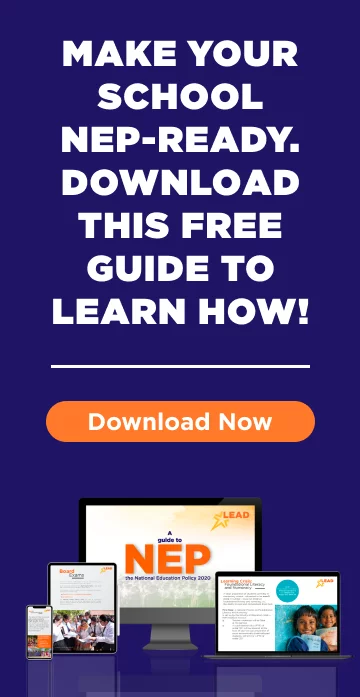
Holistic Learning vs Traditional Learning
To better understand the difference between holistic and traditional learning, we’ve identified 5 distinctive parameters:
Approach
- Holistic Learning: Integrates multiple disciplines and focuses on overall development.
- Traditional Learning: Emphasizes rote memorisation and academic subjects.
Learning Environment
- Holistic Learning: Encourages interactive and experiential activities.
- Traditional Learning: Relies on lectures and textbooks.
Skill Development
- Holistic Learning: Promotes critical thinking, creativity, and life skills.
- Traditional Learning: Focuses on academic proficiency and exam preparation.
Student Engagement
- Holistic Learning: Actively involves students in their education.
- Traditional Learning: Often results in passive learning.
Assessment Methods
- Holistic Learning: Uses diverse evaluation techniques, including projects and reflections.
- Traditional Learning: Relies heavily on standardized tests and exams.
Teacher’s Role
- Holistic Learning: Teachers act as facilitators and mentors.
- Traditional Learning: Teachers are the primary source of knowledge and instruction.
LEAD - Your Partner to Ensure Students’ Holistic Growth & Development
New Education Policy 2020 brings new life to the Indian education system by replacing old learning methods with new ones. To make learning holistic, experiential, enjoyable and engaging for students, LEAD, India’s largest School EdTech company, offers several highly innovative programmes for schools, such as:
LEAD Championships
LEAD Championships is India’s biggest student championship that provides a platform for students to showcase their skills and talent to the world while competing with other students from across the country. Over 3000+ schools participate in LEAD Championships, and more than 14 Lakh students across multiple categories and age groups learn, enjoy, and win.
Student Led Conferences (SLCs)
Student Led Conferences (SLCs) is an initiative by LEAD to make learning fun and engaging for students to ensure better learning outcomes. During this activity, students become teachers for a day and explain a concept or give a short demonstration on a topic in front of teachers and parents. This boosts students’ confidence and improves their subject knowledge while uplifting their communication and presentation skills. Student Led Conferences are conducted in both online and offline modes in LEAD-Partner Schools.
LEAD Masterclass
Designed to ensure children’s holistic development, the LEAD Masterclass is an exclusive platform for students of LEAD Powered Schools where they learn life skills from celebs like R. Madhavan, Chetan Bhagat, Sania Mirza, Leander Paes, and many more. After the Masterclass, students get personalised certificates signed by celebrities, while lucky winners get signed memorabilia. Thus, this program boosts students’ confidence and ensures their all-around success in life.
Conclusion
With all these unique programmes offered by LEAD, your school can get ready to align with the guidelines and directives outlined in the New Education Policy 2021. Click here to learn more about the New Education Policy 2021, or contact us to get a FREE NEP Consultation on making your school NEP-ready!
Article Summary
Article Summary
- New Education Policy 2020 strongly advocates for the need for holistic and experiential learning for students
- According to New Education Policy 2020, academic excellence alone doesn’t guarantee success in life
- LEAD Championships helps students build confidence by showcasing their talent on a national platform
- Student Led Conferences improves students’ communication and presentation skills along with building a strong conceptual clarity
- LEAD Masterclass helps students learn life skills from celebs like R. Madhavan, Chetan Bhagat, and many more
